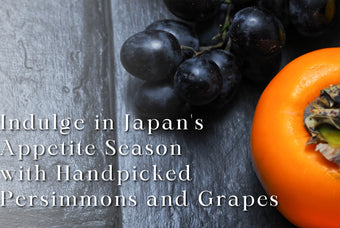Renewal of Traditional Fermented Food from Japan

Fermented foods are processed products that utilize the breakdown of sugars and proteins by microorganisms present in the ingredients.
They have been a essential part of traditional Japanese cuisine for a long time.
It's gaining attention for their beneficial effects on the body, such as promoting a healthy gut environment and boosting the immune system.
Here, we introduce some examples of fermented foods and their positive impacts on health!
How it becomes indispensable
to Japanese lives?

Japan is often referred to as a "treasure of fermented foods" due to its rich variety of local fermented food traditions.
This is largely attributed to the country's warm and humid climate.
While the high humidity in Japan creates an environment conducive to the growth of molds, including harmful ones, it also provides favorable conditions for the growth (i.e., fermentation) of beneficial and safe molds like koji fungus.
While other Asian countries also have fermented foods that utilize molds, Japan stands out for its abundance of fermented foods using koji fungus. This is largely due to the unique climatic conditions in Japan, which provide the optimal temperature and humidity for the growth of koji fungus.

Koji fungus contains enzymes that enhance the flavor of dishes and aid digestion.
It is rich in nutrients, amino acids, and B-group vitamins that promote metabolism and support good health.
Fermented foods made with koji have high storability and improve in taste over time.
Koji fungus is a vital element in Japanese cuisine and a hidden champion of Japanese health.
What has led to the renewed
interest in fermented foods?

The intestine is a vital organ involved in nutrient digestion and absorption.
It houses diverse microorganisms that impact its function.
Beneficial bacteria help maintain a healthy intestinal environment and support immune function.
Fermented foods, rich in beneficial bacteria, can promote a balanced gut microbiota and enhance overall health.
In recent years, the importance of gut health has gained significant attention, with the recognition that a healthy gut is crucial for overall well-being.
Consequently, fermented foods, which provide optimal benefits for the gut, have been receiving increased attention.
4 Representative Fermented
Foods of Japan
1. Soy Sauce

Soy sauce, a fermented food, is produced by fermenting soybeans with koji mold over time.
It contains over 300 different components, including amino acids, vitamins, minerals, and enzymes.
The delicate flavor and umami created by these components and amino acids are impossible to replicate with artificial flavorings.
It is an essential ingredient in Japanese cuisine for several reasons.
It helps create a slightly acidic environment that enhances flavors and acts as a secret seasoning to elevate taste.
Health Benefits
Soy sauce possesses antimicrobial properties, which contribute to the prevention of foodborne illnesses and potentially inhibit stomach cancer.
Additionally, it can stimulate the secretion of saliva and gastric juices, aiding in the digestion and absorption of food, offering potential health benefits.
2. Dashi

Dried bonito, the main ingredient of dashi, is made from bonito, a type of saltwater fish commonly used in Japanese cuisine.
After drying the bonito, it undergoes a fermentation process by spraying with beneficial molds, resulting in a rich and intense flavor.
This fermentation process takes several months, but it yields a remarkably firm and uniquely flavored ingredient. Once it is ready, it is shaved using a specialized grater and used in various dishes.
Health Benefit
It is rich in minerals and amino acids, high-quality proteins that play an important role in the repair and regeneration of body tissues, and B vitamins that help produce energy and maintain normal function of the nervous system.
3. Vinegar

Vinegar, a fermented condiment, is produced from various ingredients containing sugars such as grains and fruits, resulting in a wide range of types such as grain vinegar, fruit vinegar, and others.
Many are aware that vinegar, being acidic, has excellent preservation properties.
Additionally, due to its high penetrability into ingredients, it can effectively infuse flavors even with a mild taste.
Health Benefit
Acetic acid, the primary component of vinegar, has several benefits.
It helps moderate the rise in blood sugar levels, inhibits cholesterol and triglyceride levels in the blood, and supports alleviating issues commonly associated with dietary imbalance.
Furthermore, acetic acid promotes the metabolism of lactic acid, a factor contributing to fatigue, and consuming apple cider vinegar after exercise can help relieve muscle fatigue.
$58.00+
3. Sake

Sake, a traditional fermented beverage in Japan, is made from rice using koji mold.
It is a fermented food that has been highly regarded in Japan for its nutritional benefits.
It contains more nutrients than rice itself and is rich in microorganisms necessary for fermentation.
Sake has been called the "elixir of life" and is believed to be beneficial to the body when consumed in moderation.
Health Benefit
Its nutritious secret lies in being a fermented food that maximizes the power of microorganisms.
During the fermentation process by microorganisms, nutrients such as amino acids and vitamins that rice originally does not possess are produced.
$59.00+


![[Restock] Negitoro and Award-winning Soy Sauce](http://jx.today/cdn/shop/articles/negitoro-mb_340x228_crop_center.jpg?v=1696387775)


![[New] Oyaki - Mountain Veggie Dough Delights from Nagano Prefecture](http://jx.today/cdn/shop/articles/oyaki-text_340x228_crop_center.jpg?v=1695757170)





